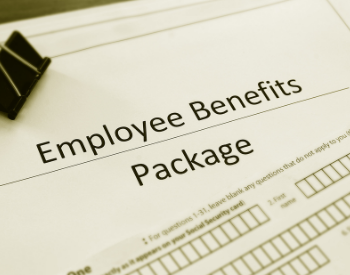According to the National Restaurant Association, 84% of restaurant operators have revealed staffing shortages to be lower than before the COVID-19 pandemic. This shortage in workers has affected the whole industry, from large restaurant chains to small local establishments. Managers and owners have expressed difficulty in hiring longtime staff these past few months.
With many businesses going back to “normal”, why is the restaurant industry having such a difficult time relaunching? Many believe unemployment checks, and workers finding jobs with better pay and benefits have made previous employees hesitant about returning to the industry. This demand for staff has led operators to raise pay and provide better benefits to entice employees to return.

Why Is There A Shortage Of Restaurant Workers?
When it comes to figuring out why employees aren’t returning, there seems to be a divide in opinion between managers and former employees. It is difficult to pinpoint the exact reason but both groups have voiced why they believe restaurants can’t find workers.
What Managers Are Saying
Many operators and managers believe unemployment benefits are to blame for the labor shortage. They believe that ex-employees are living off unemployment checks and would rather stay at home and receive government assistance than go back to work. This has led some conservative states to cut off unemployment benefits to incite staff to return to their old jobs. On the other hand, some operators and managers believe that staff members are not returning because of low salaries, childcare, and health and safety reasons.
What Ex-Employees Are Saying
Former employees have cited many reasons as to why they no longer want to return to the restaurant industry, such as:
- Health and safety - Because cooks work in a hot environment, they fear that the risk of getting COVID-19 is far greater. In a study done by the University of California, it was found that line cooks had the highest mortality rates when the pandemic was at its peak. Furthermore, employees have complained about restaurants not doing enough to ensure their safety such as not providing enough masks for employees. They also fear that taking too much time off from being sick will result in being fired and not being able to care for their families.
- Low salaries - Many employees have pointed out that the pay is not enough to live on. They believe that the pay is very little compensation for the amount of work they have to do and how they are treated.
- Changing career paths - Due to being laid off because of the lack of business, many employees were forced to change career paths or go back to school. Some have found that their new careers are less stressful and offer better salaries, which has convinced them not to return to the restaurant industry.
-
 Inability to acquire childcare - It’s no secret that working at a restaurant requires long hours
that can go well into the night. Employees have always had a hard time
finding suitable childcare that goes beyond the typical 9-to-5 office
hours.
Inability to acquire childcare - It’s no secret that working at a restaurant requires long hours
that can go well into the night. Employees have always had a hard time
finding suitable childcare that goes beyond the typical 9-to-5 office
hours.
- Ill-treatment from customers - Many employees have suffered mistreatment from rude customers especially during the pandemic because of the lack of staff. Former staff members have expressed that they are not willing to tolerate this type of behavior anymore, which is why they don’t want to return to the industry.
- Lack of benefits - A very small percentage of restaurant employees receive health insurance and fewer receive a solid retirement plan. This has motivated them to turn to other industries that provide these benefits.
How Are Restaurant Operators Solving This Problem?
As mentioned before, some operators believe that cutting off unemployment benefits will make employees return to the industry but others are taking a different approach. Because more customers are returning to dining inside of restaurants, operators have found themselves short-staffed and pressured to hire more staff by customers. Since employees are looking for other career options that they feel benefits them more, restaurant owners are offering more incentives to potential hires.

For example, a select group of restaurant owners is offering raises such as $15 to $18 an hour. Although giving raises is difficult during these times, some believe that it is for the best because it is forcing the industry to evaluate the way employees are compensated in a tough working environment.
Some operators are offering staff members extra shifts to avoid changing their usual schedules. They are also now offering more benefits such as healthcare, sick pay, retirement plans, vacation pay, and sign-on bonuses to try to recuperate employees. By making the restaurant industry more attractive, operators are hoping to hire more long-term staff and create a better culture for their employees.






